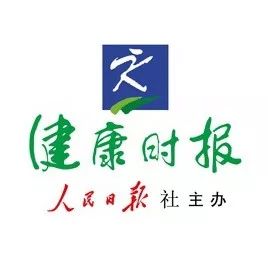
Health Times Authoritative health information, trusted for professionalism!
 Expert of this article
Expert of this article
HuangSui Ping, Chief Physician of the Gastroenterology Department at Guangdong Provincial Hospital of Traditional Chinese Medicine
Many people experience mental or physical fatigue, prolonged sitting, and irregular eating habits, which can easily lead to Qi deficiency (气虚), manifesting as weakness, lethargy, and poor appetite.Traditional Chinese Medicine (TCM) believes that the body’s Qi (气), blood, and fluids interact with each other. Some individuals may not simply have Qi deficiency but often present with mixed conditions, requiring differentiation to select more targeted treatment methods.
1. Qi Deficiency + Phlegm-Dampness
 【Typical Symptoms】FatigueObesityDizzinessChest tightness with phlegmSticky mouthPoor appetiteUncomfortable bowel movementsTeeth marks on the tongue, etc.TCM holds that the spleen and stomach primarily function in transformation and transportation, and individuals with weak spleen Qi often have poor ability to transform dampness, leading to phlegm-dampness. Symptoms include fatigue, heaviness, obesity, excessive phlegm, and stickiness. In this case, it is essential to use herbs such as Dang Shen (党参, Codonopsis), Huang Qi (黄芪, Astragalus), and Wu Zhi Mu (五指毛桃, Peach Palm) to tonify the spleen and Qi, along with Fu Ling (茯苓, Poria), Bai Zhu (白术, Atractylodes), Yi Yi Ren (薏苡仁, Coix), Bian Dou (扁豆, Hyacinth Bean), Qian Shi (芡实, Euryale), Lian Zi (莲子, Lotus Seed), and Chen Pi (陈皮, Aged Tangerine Peel) to resolve dampness.For such individuals, a daily recipe could include 30 grams of Wu Zhi Mu, 20 grams of Fu Ling washed, 500 grams of pork bones blanched, and 3 slices of ginger, all simmered in a clay pot over high heat until boiling, then reduced to medium-low heat for one hour, seasoned to taste.Wu Zhi Mu can tonify Qi, strengthen the spleen, resolve phlegm, and activate the meridians, while Fu Ling can drain dampness and calm the mind. Together with pork bones, they can enhance spleen function, tonify Qi, and eliminate dampness, alleviating discomfort caused by Qi deficiency and phlegm-dampness.
【Typical Symptoms】FatigueObesityDizzinessChest tightness with phlegmSticky mouthPoor appetiteUncomfortable bowel movementsTeeth marks on the tongue, etc.TCM holds that the spleen and stomach primarily function in transformation and transportation, and individuals with weak spleen Qi often have poor ability to transform dampness, leading to phlegm-dampness. Symptoms include fatigue, heaviness, obesity, excessive phlegm, and stickiness. In this case, it is essential to use herbs such as Dang Shen (党参, Codonopsis), Huang Qi (黄芪, Astragalus), and Wu Zhi Mu (五指毛桃, Peach Palm) to tonify the spleen and Qi, along with Fu Ling (茯苓, Poria), Bai Zhu (白术, Atractylodes), Yi Yi Ren (薏苡仁, Coix), Bian Dou (扁豆, Hyacinth Bean), Qian Shi (芡实, Euryale), Lian Zi (莲子, Lotus Seed), and Chen Pi (陈皮, Aged Tangerine Peel) to resolve dampness.For such individuals, a daily recipe could include 30 grams of Wu Zhi Mu, 20 grams of Fu Ling washed, 500 grams of pork bones blanched, and 3 slices of ginger, all simmered in a clay pot over high heat until boiling, then reduced to medium-low heat for one hour, seasoned to taste.Wu Zhi Mu can tonify Qi, strengthen the spleen, resolve phlegm, and activate the meridians, while Fu Ling can drain dampness and calm the mind. Together with pork bones, they can enhance spleen function, tonify Qi, and eliminate dampness, alleviating discomfort caused by Qi deficiency and phlegm-dampness.
2. Qi Deficiency + Yin Deficiency
 【Typical Symptoms】Poor appetiteAbdominal distensionIrritabilityDry mouth and throatHeat in palms and solesNight sweatsYellow urineDry stools, etc.TCM states that “Qi generates fluids”; if Qi is deficient, the power to generate fluids diminishes, leading to Yin deficiency, which can manifest as heat in the five hearts, dry mouth and throat, yellow urine, and dry stools. In this case, herbs such as Yin Er (银耳, Tremella), Shan Yao (山药, Chinese Yam), Gui Yuan (桂圆, Longan), Gou Qi Zi (枸杞, Goji Berries), Hong Zao (红枣, Red Dates), Yan Wo (燕窝, Bird’s Nest), Hua Jiao (花胶, Fish Maw), and Hai Shen (海参, Sea Cucumber) can be used to nourish Yin and moisten dryness, while also tonifying the spleen and Qi, often using Tai Zi Shen (太子参, Pseudostellaria), Dang Shen, Xi Yang Shen (西洋参, American Ginseng), and Huang Qi.For such individuals, a daily recipe could include 15 grams of Xi Yang Shen and 30 grams of Shan Yao washed, one water duck processed and blanched, all placed in a clay pot with adequate water, simmered over medium to low heat until cooked, then seasoned (serves two). Xi Yang Shen is sweet and cool, capable of tonifying Qi and nourishing Yin, while Shan Yao is sweet and neutral, beneficial for the spleen and stomach, generating fluids, and nourishing the lungs and kidneys. The water duck is effective for nourishing Yin, and together they work to tonify the spleen, Qi, and nourish Yin, addressing the state of Qi deficiency combined with Yin deficiency.
【Typical Symptoms】Poor appetiteAbdominal distensionIrritabilityDry mouth and throatHeat in palms and solesNight sweatsYellow urineDry stools, etc.TCM states that “Qi generates fluids”; if Qi is deficient, the power to generate fluids diminishes, leading to Yin deficiency, which can manifest as heat in the five hearts, dry mouth and throat, yellow urine, and dry stools. In this case, herbs such as Yin Er (银耳, Tremella), Shan Yao (山药, Chinese Yam), Gui Yuan (桂圆, Longan), Gou Qi Zi (枸杞, Goji Berries), Hong Zao (红枣, Red Dates), Yan Wo (燕窝, Bird’s Nest), Hua Jiao (花胶, Fish Maw), and Hai Shen (海参, Sea Cucumber) can be used to nourish Yin and moisten dryness, while also tonifying the spleen and Qi, often using Tai Zi Shen (太子参, Pseudostellaria), Dang Shen, Xi Yang Shen (西洋参, American Ginseng), and Huang Qi.For such individuals, a daily recipe could include 15 grams of Xi Yang Shen and 30 grams of Shan Yao washed, one water duck processed and blanched, all placed in a clay pot with adequate water, simmered over medium to low heat until cooked, then seasoned (serves two). Xi Yang Shen is sweet and cool, capable of tonifying Qi and nourishing Yin, while Shan Yao is sweet and neutral, beneficial for the spleen and stomach, generating fluids, and nourishing the lungs and kidneys. The water duck is effective for nourishing Yin, and together they work to tonify the spleen, Qi, and nourish Yin, addressing the state of Qi deficiency combined with Yin deficiency.
3. Qi Deficiency + Yang Deficiency
 【Typical Symptoms】Physical fatigueLack of energyLow speechFear of cold and windCold extremitiesPale tongueLoose stools, etc.TCM believes that Qi has a warming effect and is the source of the body’s heat. If Qi deficiency persists, it can gradually lead to Yang deficiency, resulting in insufficient stimulation of internal organ functions and slow metabolism, manifesting as fatigue, weakness, fear of cold, and diarrhea. In this case, it is necessary to tonify Qi and pay attention to warming Yang, using herbs such as Huang Qi, Red Ginseng (红参), Gan Jiang (干姜, Dried Ginger), Hua Jiao (胡椒, Pepper), Yang Rou (羊肉, Lamb), and Lu Rong (鹿茸, Deer Antler).For such individuals, a daily recipe could include 15 grams of Huang Qi washed and soaked; one pig stomach cleaned (rubbing with vinegar and flour until no slime), blanched and rinsed, sliced; half a chicken processed and blanched; 5 grams of crushed white pepper, all placed in a pot, simmered over low heat for more than one hour until the pig stomach is tender, seasoned to taste (serves two).Huang Qi is sweet and warm, good for tonifying Qi and stabilizing the exterior, while Hua Jiao is spicy and warm, capable of warming the interior and dispelling cold, alleviating bloating and cold accumulation. The pig stomach complements the form, and together they work to strengthen the spleen, tonify Qi, and warm Yang, improving the deficiency of middle Qi and Yang Qi.
【Typical Symptoms】Physical fatigueLack of energyLow speechFear of cold and windCold extremitiesPale tongueLoose stools, etc.TCM believes that Qi has a warming effect and is the source of the body’s heat. If Qi deficiency persists, it can gradually lead to Yang deficiency, resulting in insufficient stimulation of internal organ functions and slow metabolism, manifesting as fatigue, weakness, fear of cold, and diarrhea. In this case, it is necessary to tonify Qi and pay attention to warming Yang, using herbs such as Huang Qi, Red Ginseng (红参), Gan Jiang (干姜, Dried Ginger), Hua Jiao (胡椒, Pepper), Yang Rou (羊肉, Lamb), and Lu Rong (鹿茸, Deer Antler).For such individuals, a daily recipe could include 15 grams of Huang Qi washed and soaked; one pig stomach cleaned (rubbing with vinegar and flour until no slime), blanched and rinsed, sliced; half a chicken processed and blanched; 5 grams of crushed white pepper, all placed in a pot, simmered over low heat for more than one hour until the pig stomach is tender, seasoned to taste (serves two).Huang Qi is sweet and warm, good for tonifying Qi and stabilizing the exterior, while Hua Jiao is spicy and warm, capable of warming the interior and dispelling cold, alleviating bloating and cold accumulation. The pig stomach complements the form, and together they work to strengthen the spleen, tonify Qi, and warm Yang, improving the deficiency of middle Qi and Yang Qi.
More Health Tips
Long press to identify the QR code
Download the People’s Daily Health App

More exciting articles:
Check here for a comprehensive maintenance guide for women!
Spring is the best time to nourish the liver! Do these 4 simple and practical things!
Are your blood vessels aging faster than your age? Doctors remind: Blood vessels also need to be protected from premature aging!
Life-threatening! This driver had blocked blood vessels, and one decision saved his life!
After cancer, these foods can be consumed regularly to ensure nutrition and reduce risks!
This article was first published on March 22, 2022, in Health Times: “Three Common Manifestations of Qi Deficiency“Article edited by: Li Yi Meng, Wang Zhen Chief Reviewer: Yang Xiao Ming

